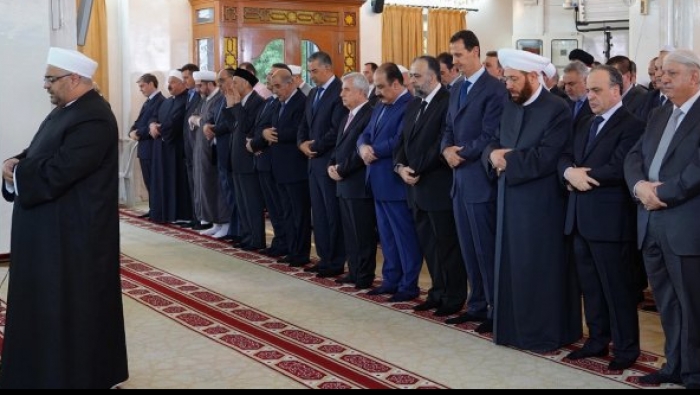Baladi News - Media
The head of the Syrian regime, Bashar al-Assad, has signed into law a new bill expanding the powers of a government ministry overseeing religious affairs and limiting the term of the country’s top Muslim cleric, France 24 reported on Sunday.
The new legislation grants additional powers to the ministry of religious endowments, or “waqf”, which already oversees Islamic affairs in Syria.
Specifically, the waqf minister will have a role in naming the next mufti, who had been previously appointed by the president.
The new law also sets the mufti’s term, previously unlimited, at a renewable period of three years.
The waqf minister will now oversee religious schools, head the Council on Islamic Jurisprudence, and regulate religious programming on media outlets.
The new law also stipulates that Muslim imams are not allowed to travel outside of Syria or attend any conference even inside the country without the waqf minister’s permission.
It forbids preachers and religious instructors from “stoking sectarian strife” or “taking advantage of religious platforms for political purposes.”
The legislation had sparked controversy this month, with many saying it was state overreach into religious affairs. While others said it was a way to regulate religious discourse in order to “fight extremism.”
France 24 cited a Syrian lawyer as saying to AFP that the law was a worrying expansion of state control.
The waqf minister could now intervene “in activities unrelated to the ministry’s administration, including in religious literature,” said the lawyer, speaking on condition of anonymity.
It appears that non-Muslim communities are not affected by the new law, since the overwhelmingly population in pre-war Syria was Sunni Muslim, with smaller numbers of Shiite Muslims and Alawites. Christians and Druz are also scattered across the country.
Source: France 24

